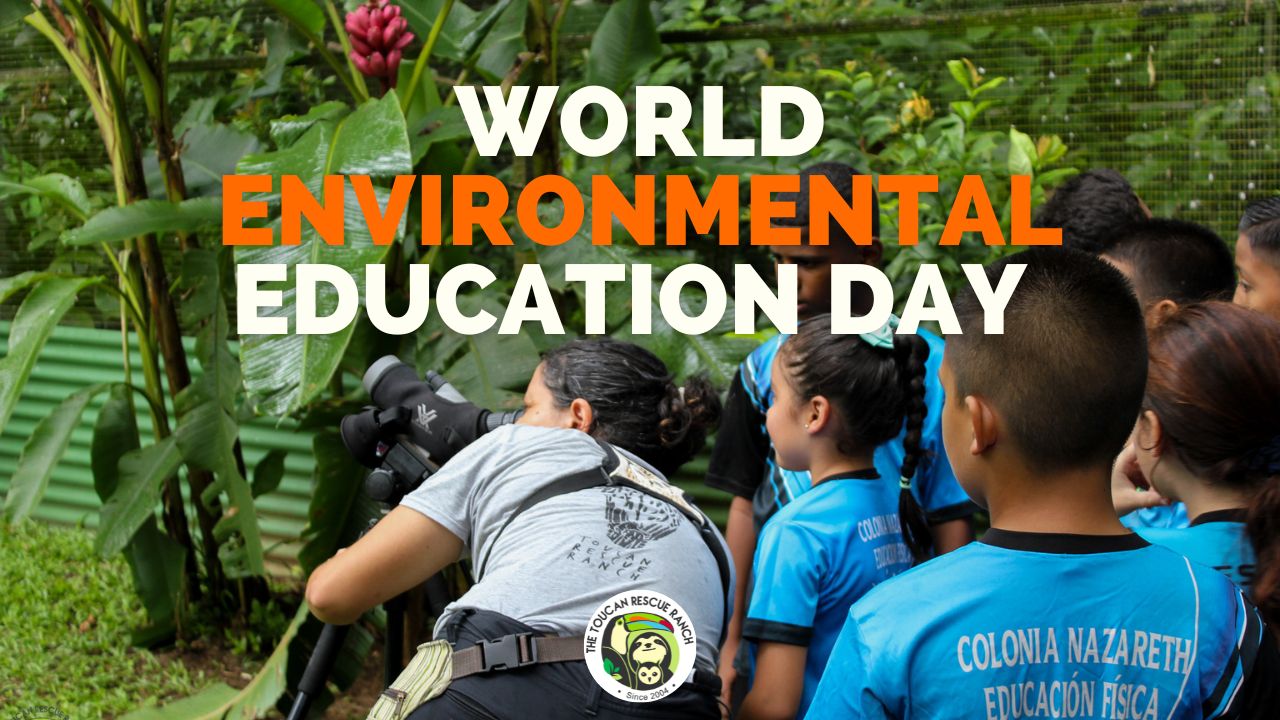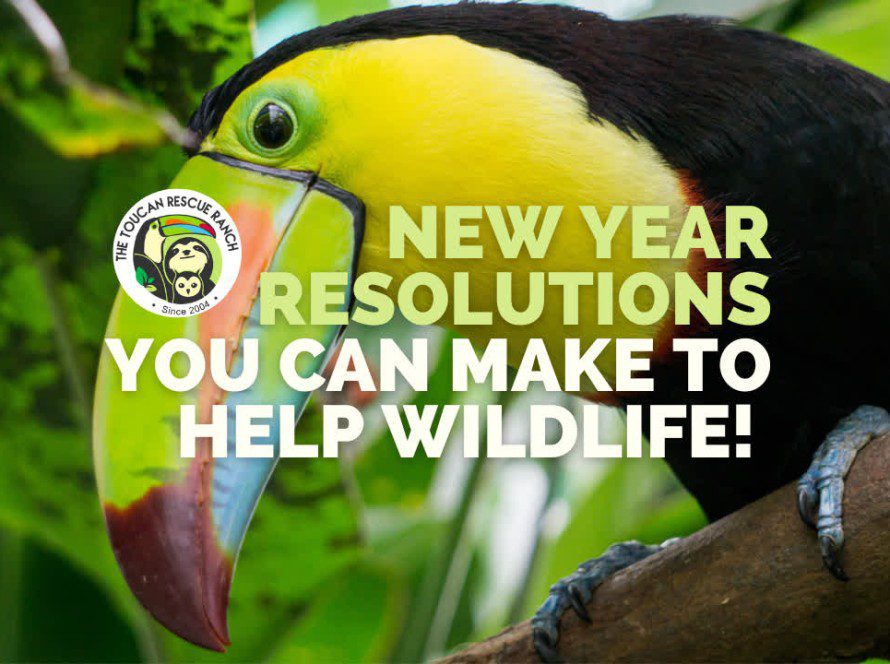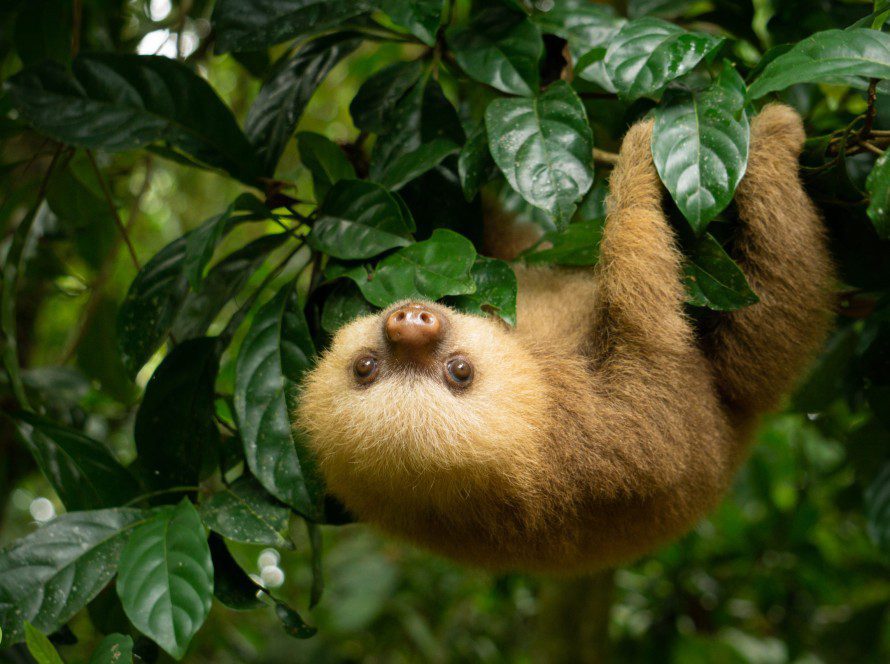It’s World Environmental Education Day!
An important aspect of Toucan Rescue Ranch’s mission is to provide environmental education to the public, but especially to younger generations. By fostering environmental literacy in our schools, we empower young minds to make informed decisions and embrace responsibility for the world they inherit.
Children with the least exposure to environmental education often live in rural communities that need it the most. With this in mind, we prioritized the construction of a second education center at our Release Site, located in Nazareth of Sarapiquí, Costa Rica, and began giving talks to local schools that could not visit Toucan Rescue Ranch for a field trip. These in-classroom speeches were aimed at helping students understand how our actions impact wildlife and what they can do differently in their day-to-day lives to help wild fauna.
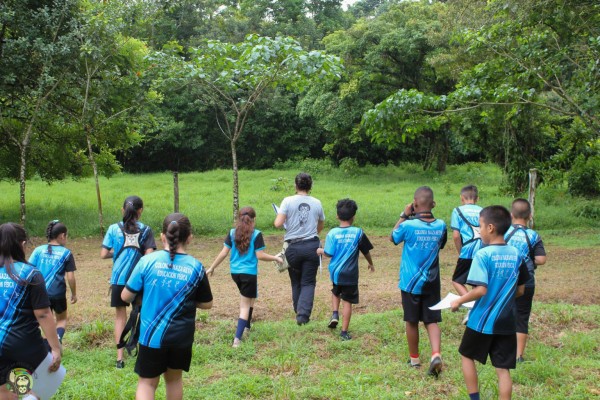
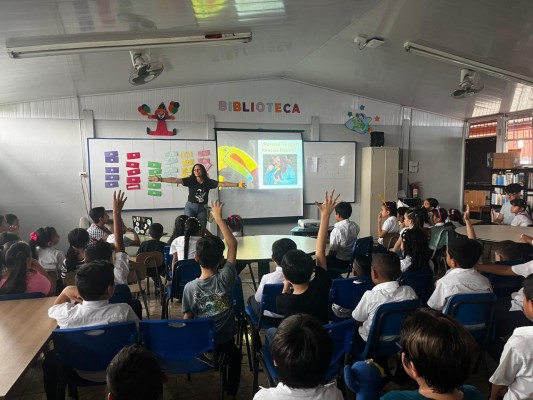
At our new Education Center, we hosted local students for hands-on workshops, including lessons in wildlife observation.
“Through the support of the Greenville Zoo Conservation Grant, we purchased binoculars and a telescope that would allow students to view better the animals we have rewilded,” says Stephanie Valle Cubero, education coordinator at Toucan Rescue Ranch, whose vision and passion inspired these workshops to fruition.
“We wanted to provide an informative experience but also impactful for the participants who had the opportunity to see some of the animals that our rescue center has rewilded.”
Many issues that result in wildlife coming to us, like animal abuse, illegal pet trade, and loss of habitat, can be prevented through environmental education.
And no speech or lecture is as powerful as learning by admiring rehabilitated wild animals that have suffered from these problems and are now back in their natural habitat. We cannot thank the Greenville Zoo enough for trusting our vision.
In addition to having the opportunity to observe successfully rewilded animals, we also provided students with a lesson on bird observation, using resources provided by the Cornell Lab of Ornithology’s K-12 education program. These lessons aimed to inspire bird observation as a more attractive and fulfilling experience for people to get close to nature rather than caging wild birds as pets.
The animals under our care arrive at our doorstep for anthropological reasons—human actions that have disrupted their habitats altered their ecosystems, and often left them needing assistance. Wildlife rescue centers should not be overwhelmed by the consequences of human actions. Let us strive to be architects of a world where compassion for nature and responsible environmental stewardship are ideals and guiding principles that shape our legacy.
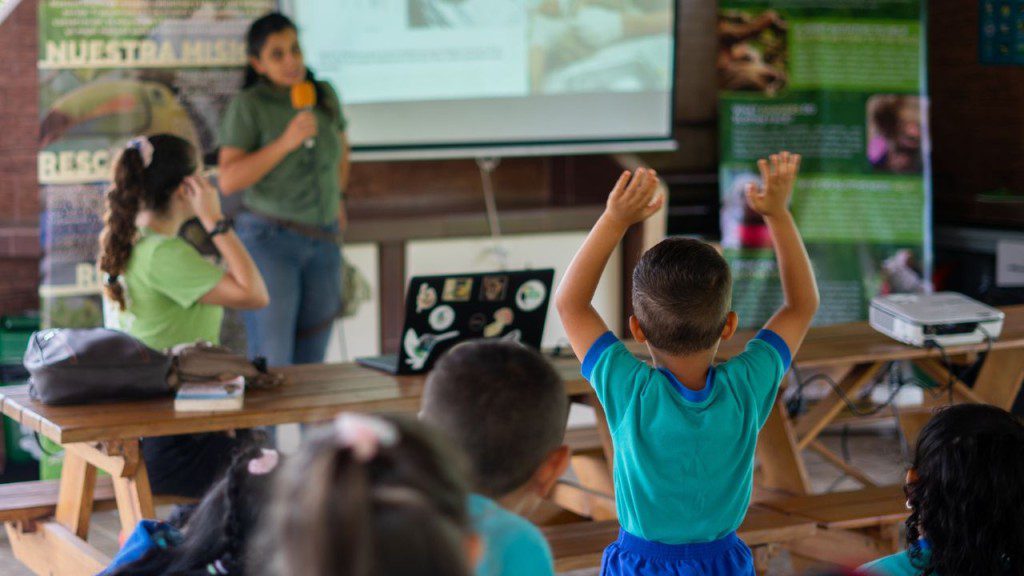
We would like to extend a gracious thank you to the school of IPICM Instituto de Psicopedagogía Integral – Colegio Isaac Martí, the school Santiago in San Rafael de Heredia, and the School Lomas del Río for opening their classroom doors to us and for making an effort to provide enriching educational experiences to their students.
If you or someone you know is a teacher based in Costa Rica and are interested in learning more about our education initiatives, please email edcoord@toucanrescueranch.org to arrange a visit to your classroom! We also offer field trips, both in-person and virtual, for teachers outside of Costa Rica who would like to share the world of tropical fauna and conservation with their students.


